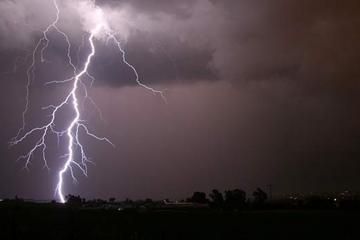Click here to subscribe today or Login.

Don’t underestimate the potent punch of a Pennsylvania thunderstorm.
Lightning, while not claiming the hundreds of lives each year in the United States as it once did, accounts for dozens of deaths annually and injures many more, often leaving survivors to cope with permanent disabilities such as memory problems and hearing loss.
Especially during the active summer storm season, golfers, hikers and other outdoorsy sorts should use common sense to avoid getting caught far from shelter. Heed those weather warnings heard on radio and TV and delivered to your cellphone.
Too many people seen at Luzerne County picnics, sporting events and pool sides seemingly are content to keep their heads in the clouds. They disregard the kind of cautionary advice that will be issued during Lightning Safety Awareness Week later this month (June 21-27). They assume thunder heard in the distance poses no risk as long as the sky above is blue. They perhaps believe rubber-soled shoes or crouching will eliminate the possibility of shock.
Wrong, wrong and wrong.
The National Weather Service, which stopped promoting the crouch in 2008, emphasizes the importance of acting promptly when thunder rumbles to avoid being in a dangerous situation. During an electrical storm, get inside a house, other solid building or hard-topped vehicle (not a convertible).
Tents and picnic pavilions are not secure spots.
The Pennsylvania Emergency Management Agency’s guidance for thunderstorms also cautions against waiting out the storm on beaches, hilltops or boats, beneath a tree or atop metal objects such as tractors, golf carts and motorcycles. Avoid showering or bathing during the storm, as metal pipes can conduct electricity. Also, don’t place calls using a corded telephone unless it’s an emergency.
The odds are extremely low that you’ll ever feel a bolt’s jolt. Yet electrocutions can and do occur: Nearly three years ago at Pocono Raceway in Monroe County, one man attending a NASCAR event was killed and nine others injured as a result of two lightning strikes.
So far in 2015, the National Weather Service’s data show lightning has killed six people in the United States, including a West Virginia teen struck while near a tree. He reportedly had been fishing with two friends, both of whom were hurt.
Don’t become a tragic statistic. Respect thunderstorms; each time one approaches, quickly move to a safe place.





